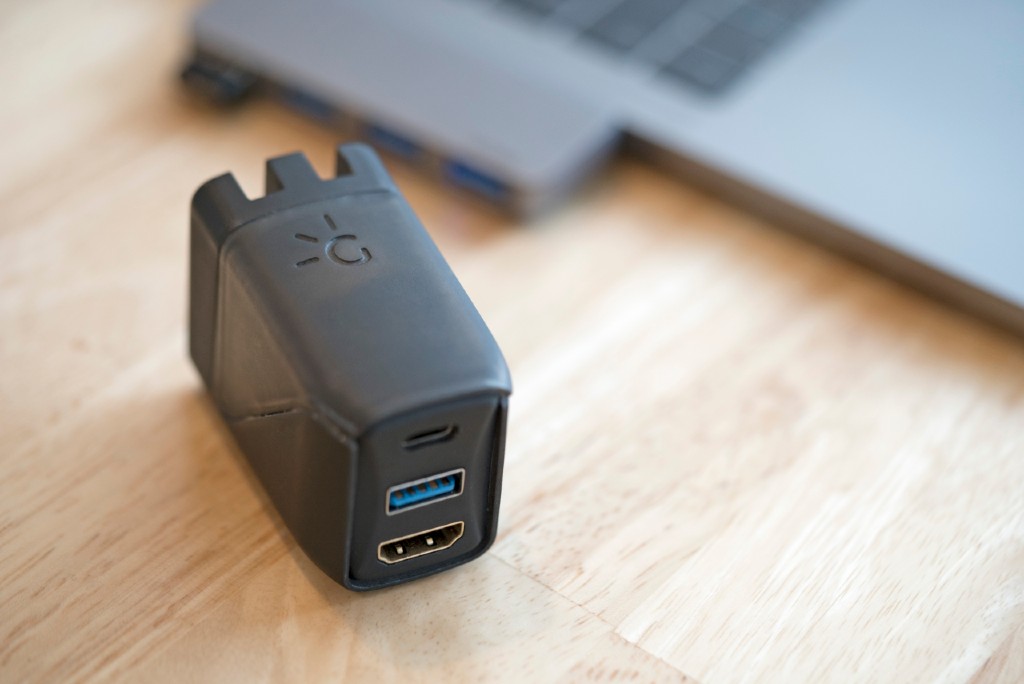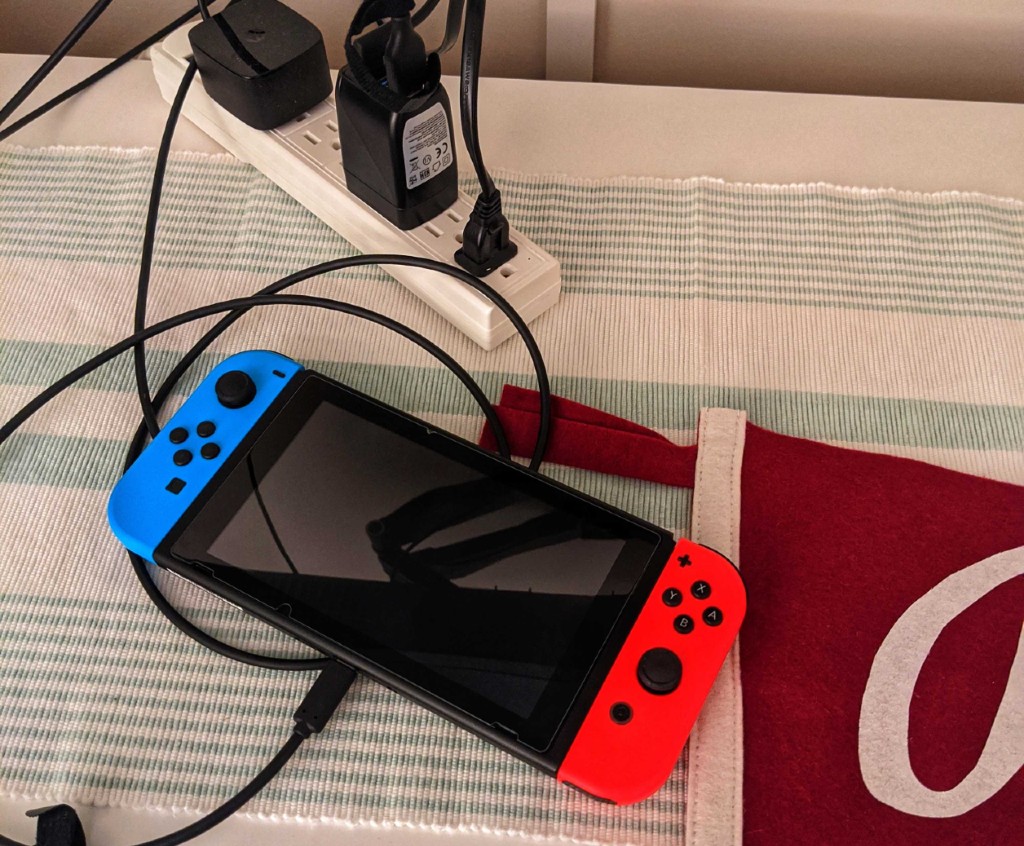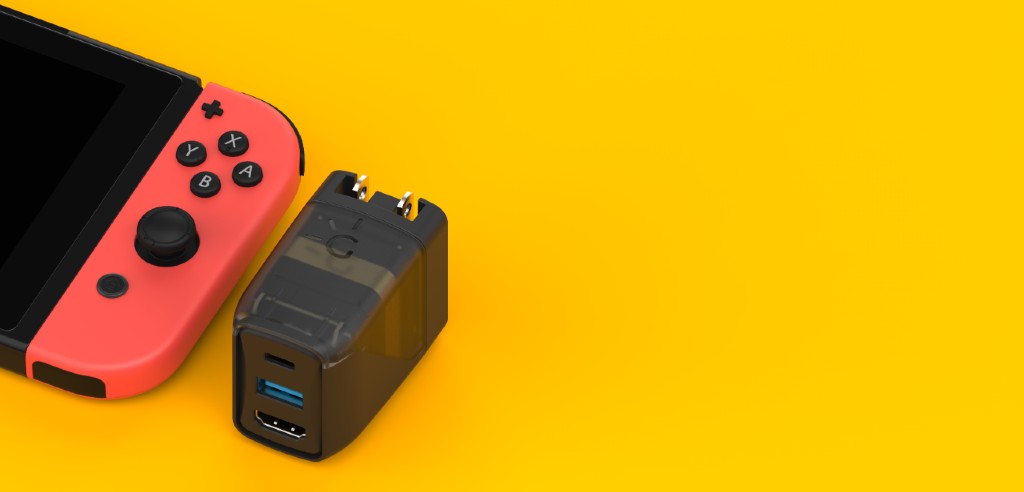There are a lot of frivolous purchases you can make when it comes to video games, but buying a second dock for the Nintendo Switch is certainly up there at the top. Unless your first one breaks, a second accessory device that’s mostly used to charge the hybrid console and connect it to a TV feels like excess, especially with rumors of a next-gen Switch looming.
While some gamers will go for whatever Switch is available in these trying times, the ability to play games on a TV in addition to its built-in screen is a huge asset for the console itself. It’s made the Switch a great device for things like Jackbox Party Packs, and bringing your entire console to another Switch dock elsewhere is a satisfying benefit of buying things on the console.
If you’re trying to travel with the dock itself, though, things are a bit trickier. It’s a nifty device but not meant for suitcases or backpacks. If you happen to have the perfect-sized book to wedge in its slot you’re likely not to crack it in half, but not everyone reads as light as I do. It’s a slight inconvenience for most, but the ability to travel with a Switch and put it on any TV has long been a quiet wish for many gamers.

Which is why the Genki Covert Dock for the Switch drew so much fanfare when the accessories company launched a Kickstarter for it in 2019. The AC plug did all the work the Switch dock does in a much smaller package, turning the slotted dock into a smaller wall jack with room to charge your Switch and port its video to a TV through an HDMI cable. The Kickstarter generated more than $1.7 million for Genki, making it the third most profitable campaign for gaming hardware behind the original Oculus Rift.
There isn’t much to say about the Covert Dock’s capabilities that offers any insight: it works great. Plug it in, connect an HDMI cable to a TV and a USB-C cable to the Switch and it fires right up. The USB input charges accessories and connects controllers and does everything the same port on the regular Switch dock does. If there’s anything to review here, it’s that it feels just like it should. There aren’t connectivity questions or concerns it might not work. It does what it should and doesn’t add any extra steps to playing games.
The benefits of the Covert Dock itself are obvious to the Switch, but independent of its HDMI capabilities it’s a great option as a travel charger in general. The Covert Dock comes with international adapters, and the fold-out prongs make it easy to switch to a more exotic power source. If you’re not using (or charging) your Switch at all hours, it can effectively charge MacBooks, phones and anything else that’s at its best charging at 30 watts. It also doesn’t seem to get too hot, which is always a concern when you’re swapping out device-specific chargers.
Though the device has the “covert” naming convention that’s definitely more about its size than function. It’s not the most elegant solution in practice, though, mostly because there’s nowhere to put your console once it’s connected. If you’re hiding it in a cabinet it’s not an issue, but traveling with it will look a little like this.

When you’re on the go, any gaming setup is temporary and size matters first and foremost. Which is why the Genki Covert Dock really is great: it does what it’s supposed to, and takes up far less space than what it’s replacing. The $74.99 sticker price is high compared to other docks but saving you the trouble of untangling your cables to pack up your dock might already be worth that price tag for some. The flexibility it offers on where and on which screens you play your Switch in your home is always nice, too.
The biggest problem with the potential purchase is the fact that, well, most people aren’t going anywhere right now. Its greatest utility is as a travel device first and foremost, both for the Switch and other devices that can use its small package to keep gadgets powered on the go. While testing out the Covert Dock in my bedroom I thought about all the times I could have traveled lighter with it or changed things overseas with less stress. It was a bit of a downer, honestly, to know it won’t be fully utilized in the foreseeable future. Until then, the dock is a bit of an investment in a future where the Switch’s portability is once again more asset than aspirational.

